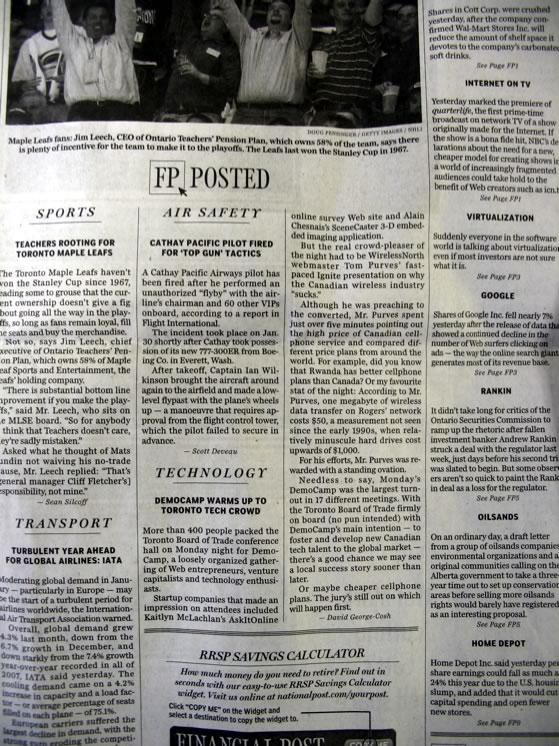In this present time, when “conservative” and “intellectual” are increasingly less likely to be used in the same sentence, I have to note the passing of William F. Buckley Jr., who has been described as someone who (as Weekly Standard editor William Kristol puts it) “legitimized conservatism as an intellectual movement and therefore as a political movement.”
Here’s a snippet on the Associated Press article on his passing:
Fifty years earlier, few could have imagined such a triumph. Conservatives had been marginalized by a generation of discredited stands – from opposing Franklin Roosevelt’s New Deal to the isolationism which preceded the U.S. entry into World War II. Liberals so dominated intellectual thought that the critic Lionel Trilling claimed there were “no conservative or reactionary ideas in general circulation.”
Buckley founded the biweekly magazine National Review in 1955, declaring that he proposed to stand “athwart history, yelling `Stop’ at a time when no one is inclined to do so, or to have much patience with those who urge it.” Not only did he help revive conservative ideology, especially unbending anti-Communism and free market economics, his persona was a dynamic break from such dour right-wing predecessors as Sen. Robert Taft.
My favourite Bill Buckley moment is a minor one. Back in the early nineties during our days at Crazy Go Nuts University, my old pal George and I used to laugh at his appearance on TV ads for his magazine, the National Review in his “Thurston Howell the Third” accent. We especially loved the bit where he said it was “quite possibly the best magazine”, do a little sideways glance and then finish the sentence with “…in the world!”, after which he’d put a couple of fingers over his mouth, as if he were amazed by his brief insouciant moment.
I may have not agreed with all his stances in the National Review or on his public affairs television show Firing Line, but I always found the man thought-provoking and entertaining, whether in his own forums, or outside them, such as his numerous appearances on the Tonight Show during Johnny Carson’s era.
I remember reading an article in Spy magazine that asked who could take over for Buckley once he stepped down or passed away. The candidates all seemed to be pale imitations of Bill (with the possible exception of P.J. O’Rourke, whose writing I quite enjoy).
As a technical evangelist, I have to credit Buckley’s work as a political evangelist — I’d be lying if I said that I didn’t borrow from his bag of tricks. As an accordion player, I must also tip my hat to Buckley for taking up an offbeat keyboard instrument with a bad reputation: he plays the harpsichord.
Besides, any man whose mere presence could make Ayn Rand stomp out of the room in a huff had to have been all right.
Requiescat in pace, Mr. Buckley.
Links
- Associated Press piece on Buckley
- New York Times piece on Buckley
- National Review editorial piece on Buckley
- Wonkette’s piece on Buckley, which hits the nail right on the head by opening with “You’d never know it by reading National Review today, but that conservative magazine used to be an important, interesting and intellectual journal. That’s because William F. Buckley Jr., who died early this morning at the ripe old age of 82, was a hell of a writer…”




